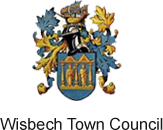What is the Wisbech High Street Project?
The Wisbech High Street Project has been set up by Fenland District Council following the award of a £1.9m grant from the Heritage Lottery Fund
Working with High Street property owners, the project will restore a number of buildings on the High Street, bring new uses back into empty properties and transform the derelict sites at number 11-12 and 24
Alongside the High Street building improvements there will be a series of heritage-related activities for local community learning and participation.
Where has the £1.9 million come from?
The High Street Project is funded by the Heritage Lottery Funds Townscape Heritage Scheme with additional financial support from Fenland District Council, Cambridgeshire County Council, Wisbech Town Council and the Wisbech Society.
Townscape Heritage schemes help to reverse the decline of our best-loved historic townscapes. Under the terms of the grant awarded to this scheme money can only be spent on the application area – Wisbech High Street.
What is the money being spent on?
Each property was assessed during the application for the Townscape Heritage Scheme and given a priority rating. The buildings which were identified as High Priority are the gap site at No 24 and No’s 11 and 12 High Street – both of which have suffered complete collapse at the rear. These will be the initial focus of the project and addressed as a priority.
The project will award around £2m of grants to be spent on the physical improvements to the High Street buildings. The amount spent on each building will be determined by the condition of the building at the time of assessment and relies on the engagement of the property owners – they will need to apply to us for a grant towards repairs.
Eligible works include repairs to roofs, chimneys, leadwork, downpipes, gutters, parapets, stonework, brickwork and repointing. The project also encourages grant applications for traditional repair of windows, doors and external joinery, including historic shopfronts, with all repairs undertaken using traditional materials replicating original patterns and details.
Who is involved in the Wisbech High Street Project?
A Core Team was established in 2013 as the main working group for the project and will continue to be so throughout the delivery phase. The Core Team includes the Project Champion, Project Sponsor, FDC officers, The Wisbech Society, Historic England, Townscape Heritage Project Officer and specialist advisors as required. The team meets every 2 months.
An extensive Consultative Group was formed at the start of 2014 in order to embed the project within the local community and secure community ownership, particularly in relation to the heritage-related activities the project will deliver.
What else is happening as part of the project?
There is also an exciting Activity Plan to accompany the capital investment being made on the High Street which will provide an opportunity for community engagement in heritage-related activities. The project will deliver these activities over 4 years which include traditional construction skills training, archaeological investigation, photography, exhibitions and open days as well as close involvement with community groups and schools to promote heritage learning. More information on how to get involved can be found on the Activities area of the website.
What are the timescales?
The project funding was initially awarded for 4 years, however in July 2020, the project was awarded a two year extension from the National Lottery Heritage Fund. The project will now end in December 2022.
Works which have been already been approved and are being funded by the High Street Project include residential conversion and new shop fronts at 13-17 High Street.
What long-term benefits will the Wisbech High Street Project bring to the community?
The events and training offered as part of the project Activity Plan will provide the opportunity for the community to learn new heritage-related skills and gain unique experiences. For example, we will be opening up the tunnels under the town for investigation and mapping, funding heritage construction skills courses with the local college and documenting changes to the High Street and the town through photographic workshops led by a professional photographer.






No Comments
Add a comment about this page